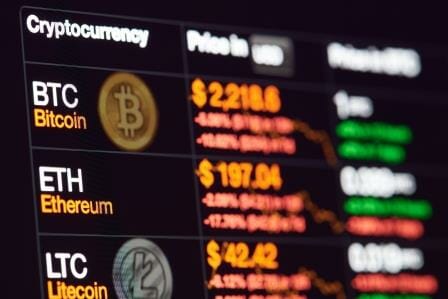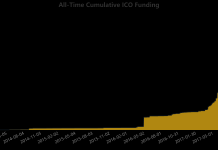Digital asset exchanges in Thailand have more than 2.94 million user accounts, making up 4.27% of the total population, as well as exceedingly more than half of the 5.5 million accounts in the exchange market values.
HashKey Capital, a renowned Asian crypto fund, released its annual report in Singapore on December 7, 2023, showing Thailand’s outstanding growth in the global crypto industry, which has been driven by widespread adoption, a significant increase in digital asset trading volume, favorable regulations, and a thriving ecosystem of digital companies.
Thailand has become a crucial player in the cryptocurrency scene in Asia. This is attributed to significant adoption rates, a notable increase in digital asset trading volume, a favorable regulatory environment, and a flourishing ecosystem of digital services in the country.
CoinGecko data on major digital asset exchanges in Thailand, including Bitkub, Bitazza (broker), and Satang, indicates that the cumulative trading volume from January to October 2023 amounted to $116.43 million, equivalent to approximately 4 .1 trillion Thai baht.
Thai Traders Flock into Digital Assets
According to the latest HashKey report, throughout 2023, Bitkub emerged as the market leader, with a 77.04% share of the total trading volume for the year. Bitazza and Satang obtained market shares of 21.60% and 1.36%, respectively. Notably, Satang was acquired by KASIKORNBANK (KBANK) in 2023 and later renamed Orbix.
Meanwhile, Thailand ranks 10th according to Chainalysis’ Cryptocurrency Adoption Index, taking into account the country’s collective user participation in centralized exchanges, peer-to-peer trading, and decentralized finance (DeFi) protocols as factors that contribute to your overall evaluation.
Between January and November 2023, Binance in Thailand experienced an average of 116,877 monthly visits, with the highest number recorded occurring in January 2023 with 303,057.
From September 2020 to August 2023, the Southeast Asian country recorded more than 797,931 MetaMask wallet downloads. The peak occurred in November 2021, with 88,539 downloads, likely driven by the growing popularity of GameFi and the metaverse.
Reverse Trend of Thailand’s DEX and NFT Sectors
In the 2021 bull market, decentralized exchange (DEX) platforms like PancakeSwap recorded an average of 35,000 monthly visits. However, these visit numbers decreased during the bear market.
The non-fungible token sector experienced a similar downtrend. Looking at the NFT boom in 2022, Opensea experienced an average of 48,000 monthly visits from Thailand, peaking at 65,000 visits in July. But traffic slowed during the bear market.
Despite this, Sanjay Popli, co-founder and CEO of Cryptomind, remains optimistic:
“The adoption of Web3 technologies by financial institutions, banks and conglomerates in Thailand is a significant development, indicating broader acceptance and integration of blockchain and crypto into mainstream businesses. Together with a balanced regulatory framework, these developments are propelling Thailand to a leading position in the global cryptocurrency and blockchain arena.”
Traditional financial institutions are providing substantial support to the cryptocurrency market in Thailand, as evidenced by Siam Commercial Bank’s (SCB) plans to explore opportunities in the crypto space. Earlier this year, Srettha Thavisin, a property developer, took office as Prime Minister of Thailand following a highly controversial election.
Before entering politics, Thavisin was active in the country’s digital asset sector. A central theme of Thavisin’s political campaign revolved around a commitment to a nationwide “airdrop”, in which each Thai citizen would receive 10,000 Thai baht ($300). This amount is intended for people over 16 years of age, with the stipulation that it can only be spent within a four-kilometer radius of their residence.
By Leonardo Perez











